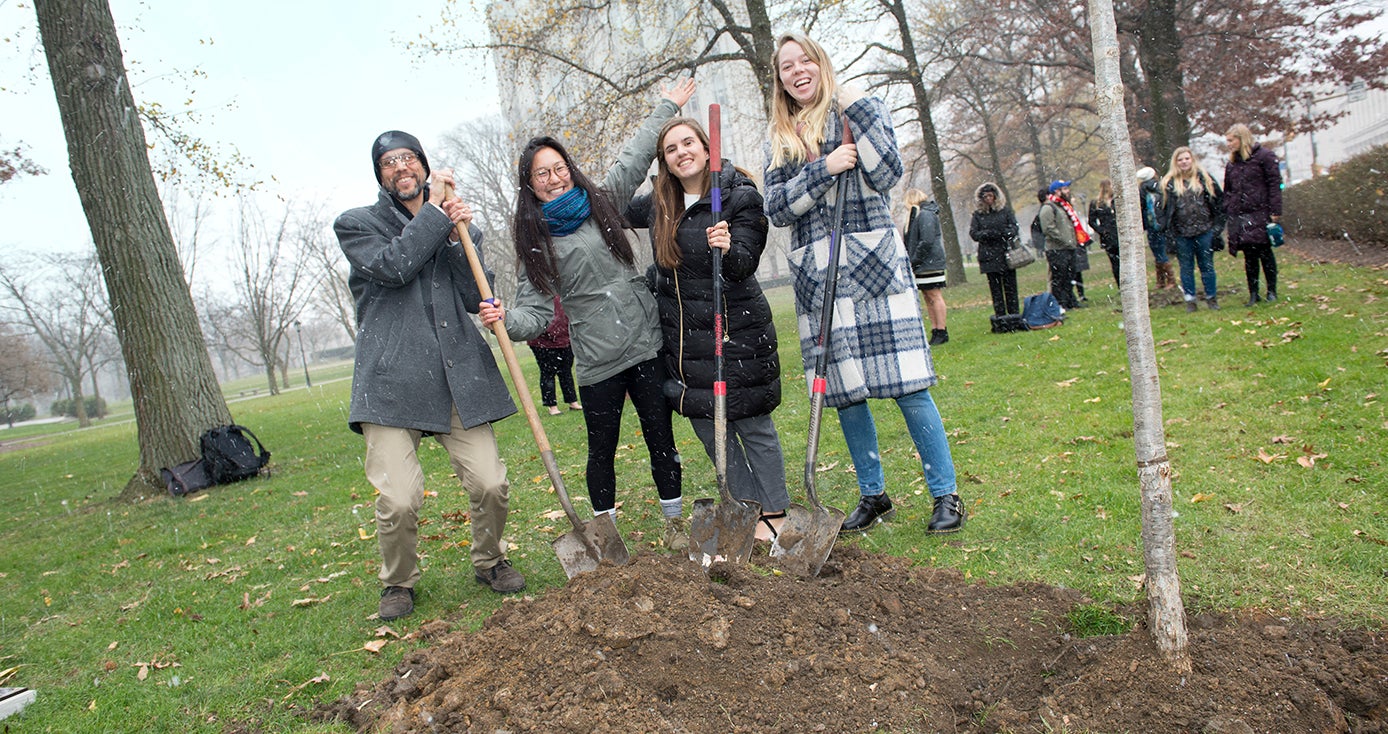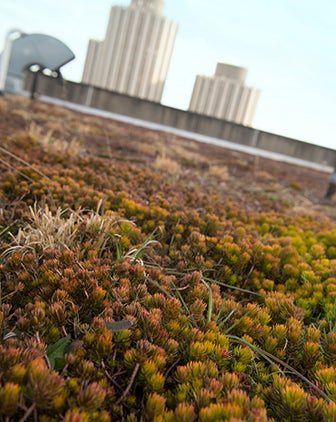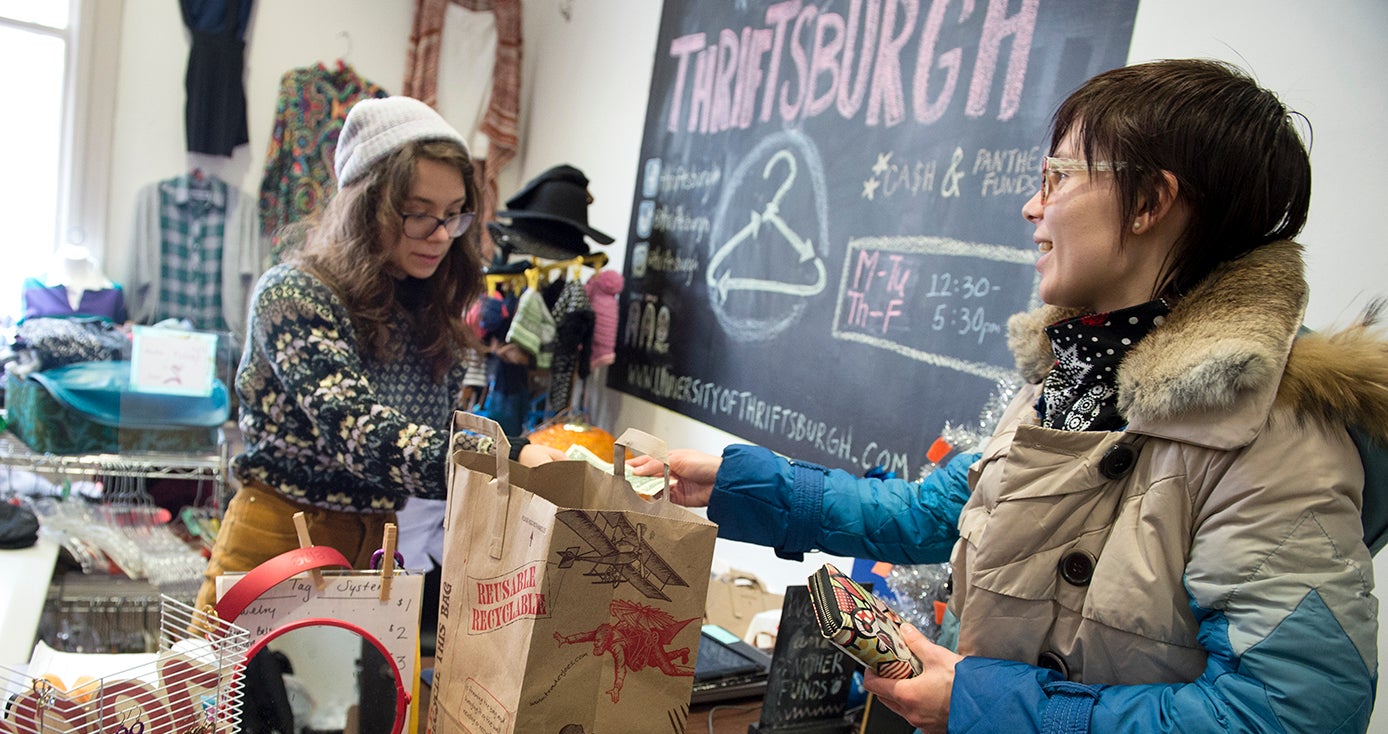
Subscribe to Pittwire Today
Get the most interesting and important stories from the University of Pittsburgh.Sustainability Week Events Showcase Dedication to Campus Green Initiatives
Lowering energy and water use, reducing plastic waste and offering car charging stations are just a few examples of how the University of Pittsburgh is increasing efforts to be more environmentally responsible.
And the Pitt community has an opportunity to learn more about being ecofriendly during Sustainability Week, April 14-20. Events enable people to take part in improving the University’s environmental impact through activities such as bicycling instead of driving cars, learning about composting and growing plants in dorms and apartments, dropping off house clutter to be recycled and shopping at local farmers markets, among other initiatives. Keynote speakers are also planned for the week.
University of Pittsburgh Sustainability Week
Upcycle a container into a succulent planter, learn the bicyclists’ rules of the road, declutter for charity and attend the annual Bigelow Bash — which is Green Certified this year.
These events and more will be going on around campus during Sustainability Week April 14-20, bringing awareness to how students, faculty, staff and neighbors can help to achieve Pitt’s sustainability goals.
Visit the event page for a full listing of events and details on how to participate.
Sustainability Week, organized by the Mascaro Center for Sustainable Innovation, highlights projects that align with the 2018 Pitt Sustainability Plan, released in January, which establishes goals aiming to improve the University’s environmental impact.
“Pitt has long championed forward-thinking and innovative practices that have deepened the resiliency of our region and the world,” said Pitt Chancellor Patrick Gallagher in the plan. “As a university community, we have made great strides in supporting sustainable practices in our campus operations, classrooms, research activities and local partnerships. But we can — and must — do more.”
In addition to targeting areas to improve Pitt’s impact, the plan calls for the University to establish an Office of Sustainability to coordinate efforts, foster collaboration and monitor progress toward the plan’s goals.
Based on the input of a University committee that included students, faculty and staff, the major goals to achieve by 2030 include the following:
- Reducing greenhouse gas emissions by 50 percent, including emissions from University commuting and campus transportation.
- Producing or procuring at least 50 percent of the University’s electric energy from renewable sources.
- Achieving an energy use intensity that is at least 50 percent below the national average.
- Achieving water use intensity that is 50 percent below the district average.
“There have been students, faculty and staff who have been advocating for this kind of plan for the University for as long as I’ve been teaching here,” said R. Ward Allebach, an instructor in the Environmental Studies Program at Pitt’s Department of Geology and Environmental Science, who has been teaching sustainability courses since 2008. “The culmination of all that hard work and consistent effort into this sustainability plan is a huge deal for the University.”
It was Allebach’s sustainability course that inspired students Jessica McDonald (A&S ’14) — an intern at Sodexo at the time — and Liza Boulet (A&S ’14) to create BYO[Bag] (Bring your Own Bag), which launched in 2014.
The program works like this: After the add/drop period at the beginning of each semester, students are charged 25 cents for every plastic bag they use when shopping at dining locations on campus. This fee is waived by using a reusable bag, which can be purchased at several campus dining establishments.
Half of the proceeds from the bag fee and half of the sales from the BYO[Bag] reusable bags are donated to the Pitt Green Fund to support other student sustainability initiatives.
The program has prevented the use of more than 1 million plastic bags since its beginning. More than $3,700 also has been raised for the Pitt Green Fund.
The fund, established in 2011, has helped projects like student-tended gardens, the University of Thriftsburgh and the Pitt Bicycle Collective, among others. Money is allocated to projects via a student board.
Fund coordinator Seth Sherman, a senior political science major, said action is needed for successful sustainability, though the University’s plan is a “massive step” in the right direction and shows Pitt’s commitment.
“A lot of people don’t know about all the green initiatives happening on campus, and for this plan to be successful, it needs to at least be a small part of every function at campus,” Sherman said. “If everyone does at least a little bit, then the true scope of the sustainability plan will be much more evident.”




